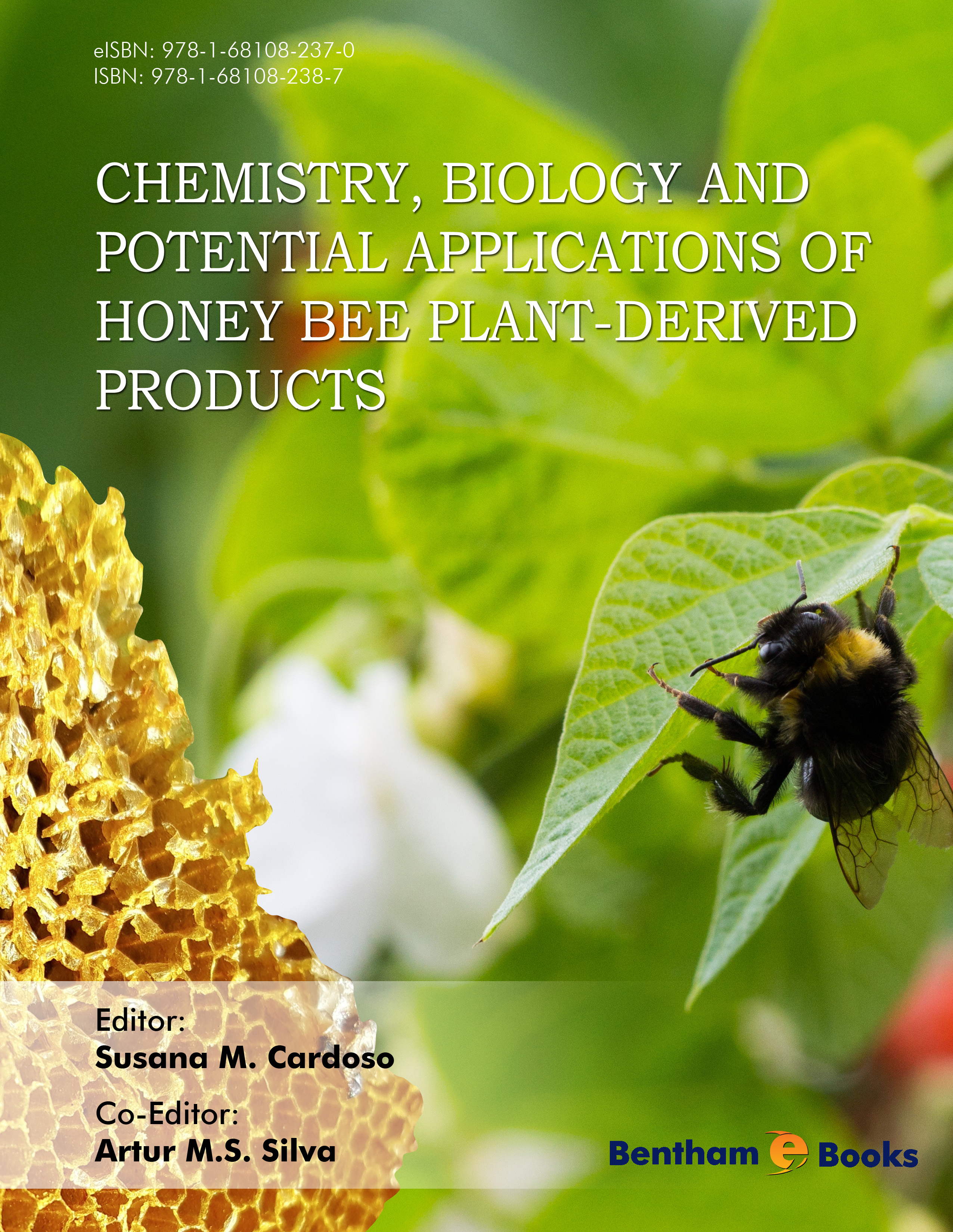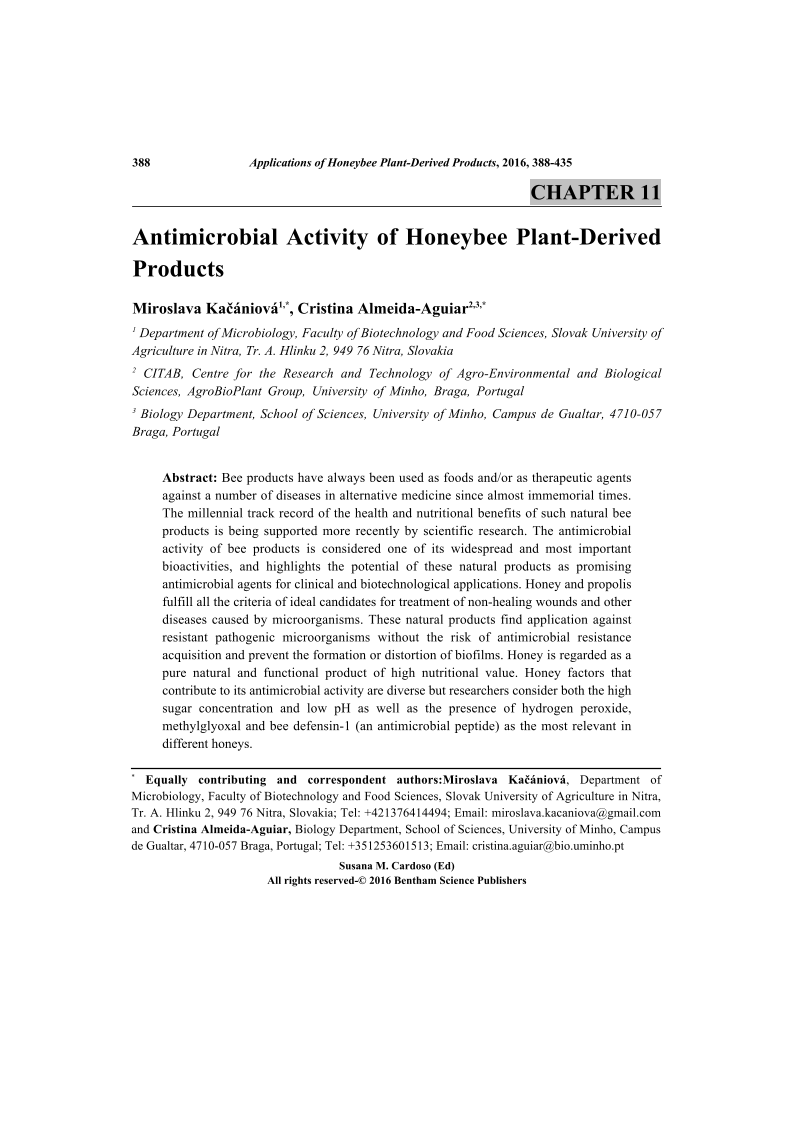Antimicrobial Activity of Honeybee Plant-Derived Products

- Authors: Miroslava Kačániová1, Cristina Almeida Aguiar2
-
View Affiliations Hide Affiliations1 Department of Microbiology, Faculty of Biotechnology and Food Sciences, Slovak University of Agriculture in Nitra, Tr. A. Hlinku 2, 949 76 Nitra, Slovakia. 2 Department of Microbiology, Faculty of Biotechnology and Food Sciences, Slovak University of Agriculture in Nitra, Tr. A. Hlinku 2, 949 76 Nitra, Slovakia.
- Source: Chemistry, Biology and Potential Applications of Honeybee Plant-Derived Products , pp 388-435
- Publication Date: June 2016
- Language: English
Antimicrobial Activity of Honeybee Plant-Derived Products, Page 1 of 1
< Previous page | Next page > /docserver/preview/fulltext/9781681082370/chapter-12-1.gif
Bee products have always been used as foods and/or as therapeutic agents against a number of diseases in alternative medicine since almost immemorial times. The millennial track record of the health and nutritional benefits of such natural bee products is being supported more recently by scientific research. The antimicrobial activity of bee products is considered one of its widespread and most important bioactivities, and highlights the potential of these natural products as promising antimicrobial agents for clinical and biotechnological applications. Honey and propolis fulfill all the criteria of ideal candidates for treatment of non-healing wounds and other diseases caused by microorganisms. These natural products find application against resistant pathogenic microorganisms without the risk of antimicrobial resistance acquisition and prevent the formation or distortion of biofilms. Honey is regarded as a pure natural and functional product of high nutritional value. Honey factors that contribute to its antimicrobial activity are diverse but researchers consider both the high sugar concentration and low pH as well as the presence of hydrogen peroxide, methylglyoxal and bee defensin-1 (an antimicrobial peptide) as the most relevant in different honeys. <p></p><p> Propolis is a sticky resin produced by bees, especially from coniferous, having plantderived and bee-released compounds, but with a chemical composition difficult to standardize due to its dependence on vegetation, season and environmental conditions at the collection site. The mechanism of propolis antimicrobial activity is complex, probably relying in a synergistic activity between different phenolic compounds such as flavonoids and phenolic acids along with other components. Pollen is a source of phytochemicals and nutrients, extremely rich in carotenoids, flavonoids and phytosterols. Although less studied for this bioactivity, bee pollen has also been proven to possess antimicrobial activity.</p>
-
From This Site
/content/books/9781681082370.chapter-12dcterms_subject,pub_keyword-contentType:Journal -contentType:Figure -contentType:Table -contentType:SupplementaryData105

